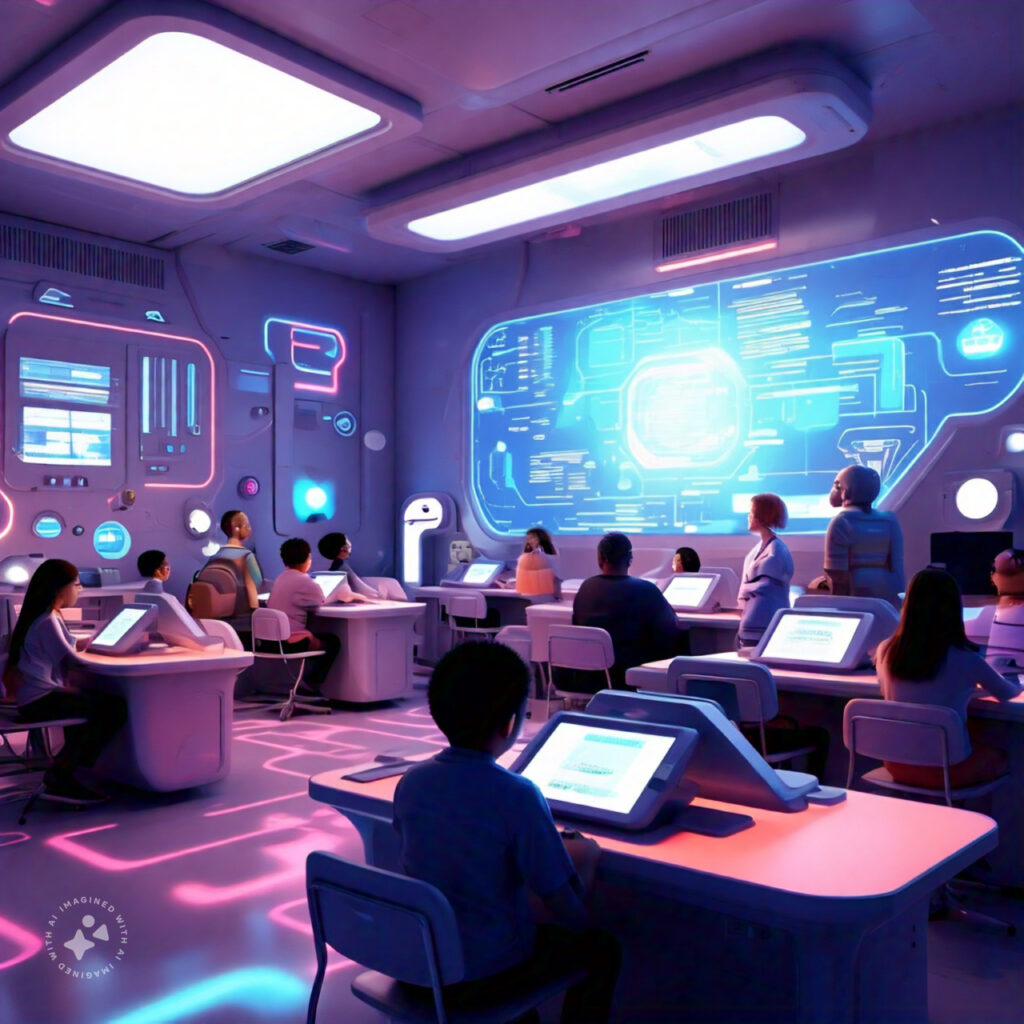
“How Artificial Intelligence is Personalizing Education”
Artificial Intelligence (AI) is transforming the education sector by offering personalized learning experiences tailored to individual students’ needs. From adaptive learning platforms to AI tutors, this technology is revolutionizing the way educators teach and students learn. In this article, we explore how AI is shaping personalized education, its benefits, challenges, and the future of learning.
1. Introduction to AI in Education
Artificial Intelligence refers to the simulation of human intelligence by machines. In education, AI plays a pivotal role in analyzing student data, understanding learning patterns, and delivering customized content.
Key aspects of AI in education:
- Data Analysis: AI systems analyze large volumes of student data to identify strengths and weaknesses.
- Adaptive Learning: Provides personalized learning paths based on individual progress.
- Automation: Simplifies administrative tasks, freeing educators to focus on teaching.
2. Applications of AI in Personalized Education
2.1 Adaptive Learning Platforms
AI-driven platforms, such as Khan Academy and DreamBox, adjust the difficulty and type of content based on a student’s learning pace and performance.
2.2 Intelligent Tutoring Systems
AI tutors provide one-on-one assistance to students, answering questions and guiding them through lessons.
2.3 Predictive Analytics
AI predicts student performance, identifying those at risk of falling behind and suggesting interventions.
2.4 Content Recommendation
AI recommends resources like videos, articles, and exercises tailored to a student’s learning style and preferences.
2.5 Automated Feedback
AI tools provide instant feedback on assignments, helping students correct mistakes and learn in real time.
2.6 Personalized Assessments
AI designs assessments that adapt to a student’s skill level, ensuring fair and accurate evaluation.
3. Benefits of AI in Personalized Education
3.1 Tailored Learning Experiences
Students receive content and guidance that matches their unique needs, improving engagement and outcomes.
3.2 Increased Accessibility
AI makes quality education accessible to students in remote areas through online platforms and virtual tutors.
3.3 Enhanced Teacher Productivity
By automating grading and administrative tasks, AI allows educators to dedicate more time to student interaction.
3.4 Continuous Learning
AI-powered platforms encourage lifelong learning by offering courses tailored to individuals’ career goals and interests.
3.5 Scalable Solutions
AI enables large-scale personalization, accommodating diverse learning styles in classrooms with limited resources.
4. Challenges of AI in Education
4.1 High Implementation Costs
Developing and deploying AI systems requires significant investment, making them inaccessible for some schools.
4.2 Data Privacy Concerns
AI systems collect vast amounts of student data, raising concerns about privacy and security.
4.3 Over-Reliance on Technology
Excessive dependence on AI may reduce critical thinking and problem-solving skills among students.
4.4 Limited Human Interaction
AI cannot fully replicate the emotional connection and mentorship provided by human educators.
4.5 Bias in AI Algorithms
AI systems can inadvertently reinforce biases present in their training data, leading to unequal learning opportunities.
5. Future of AI in Personalized Education
5.1 AI-Powered Virtual Classrooms
Virtual classrooms will integrate AI to provide real-time feedback and adaptive learning experiences.
5.2 Emotion-Recognition Technology
AI systems will analyze facial expressions and voice tones to gauge student emotions and adapt teaching methods accordingly.
5.3 Lifelong Learning Platforms
AI will support continuous education for professionals by curating courses aligned with career development.
5.4 Multilingual Education
AI-powered translation tools will break language barriers, enabling global collaboration in education.
5.5 Integration with Emerging Technologies
AI will combine with VR, AR, and IoT to create immersive and interactive learning environments.
6. Examples of AI in Personalized Education
- Coursera and edX: Use AI to recommend courses based on user interests and progress.
- Carnegie Learning: Offers AI-driven math programs with real-time feedback.
- Socrative: An AI-based assessment tool for tracking student performance.
- Duolingo: Uses AI to personalize language lessons and adapt to user proficiency levels.
- Otus: An AI platform for K-12 education, providing data-driven insights to teachers.
7. Conclusion
AI is reshaping education by delivering personalized learning experiences that cater to the unique needs of each student. While challenges like cost and privacy need to be addressed, the benefits of AI-driven education are undeniable. As AI technology continues to evolve, it promises to make learning more engaging, accessible, and effective for students worldwide.
Would you like this article customized further or converted into HTML format? Let me know!